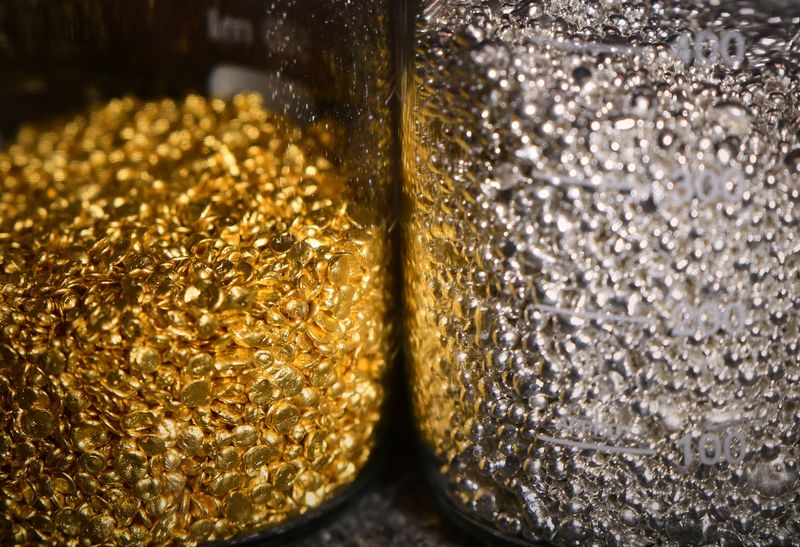By Bharat Gautam
(Reuters) - Gold steadied on Wednesday, with a weaker dollar offsetting pressure from higher U.S. Treasury yields as investors await the first pandemic-era U.S. Federal Reserve interest rate hike.
Spot gold was flat at $1,917.91 per ounce at 1015 GMT, after touching its lowest since March 1 at $1,906 on Tuesday. U.S. gold futures fell 0.3% to $1,923.40.
"Bullion bears are taking a breather as they await the Fed’s highly-anticipated policy guidance," Han Tan, chief market analyst at Exinity, said.
"Once gold markets have fully digested the Fed's policy signals, attention could swiftly return to the ever-evolving Russia-Ukraine war," Tan said, adding that any escalation of the crisis would lead to further gold price rises.
The U.S. central bank is expected to announce its first interest rate hike in three years to tackle soaring inflation.
Gold is highly sensitive to rising U.S. interest rates, and consequently higher yields on benchmark U.S. 10-year Treasury notes, which increase the opportunity cost of holding non-yielding bullion. [US/]
Gold was holding up well despite a wider risk-on sentiment, said Quantitative Commodity Research analyst Peter Fertig. [MKTS/GLOB]
"If there is disappointment that the market has expected more rate hikes that the Fed actually delivers, this could be supportive for gold, and vice-versa," Fertig added.
The U.S. dollar dipped, providing some support to greenback-priced bullion. [USD/]
A fundamental change that could take place after the Ukraine crisis ends is higher gold purchases from central banks of countries that are not aligned with the West, as they seek to diversify away from assets like the euro and dollar, said Bernard Dahdah, an analyst at Natixis.
Ukraine's President Volodymyr Zelenskiy said on Wednesday that peace talks were sounding more realistic, even as Russia's invasion continued, but more time was needed.

Spot silver eased 0.5% to $24.74 per ounce, while platinum rose 2.7% to $1,012.55.
Palladium gained 2% to $2,471.55, inching away from a Monday's more than two-week low, amid receding supply fears.